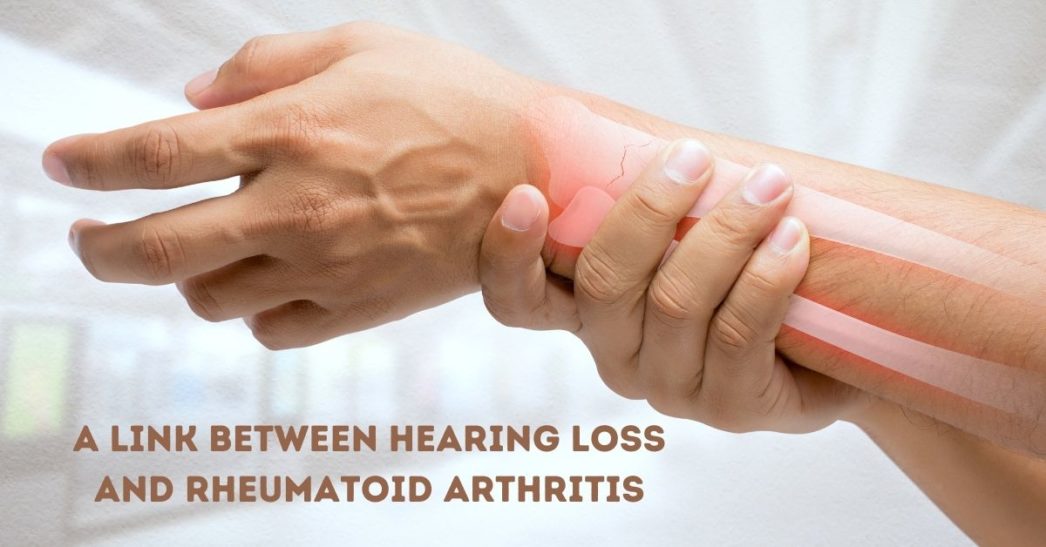Hearing loss is a growing public health epidemic that impacts over 40 million people in the U.S. Projected to increase, hearing loss already is the third most common health condition that older adults experience. Impaired hearing reduces a person’s ability to hear and process sound which can significantly impact how they navigate daily life. It strains communication, making is challenging to manage personal and professional responsibilities with ease.
Several factors can contribute to the development of hearing loss including environmental exposure to loud noise, genetic history, and existing medical conditions. Health issues like heart disease, diabetes, and hypertension have long been associated with hearing loss. Rheumatoid Arthritis can also increase the risk of developing hearing loss.
Understanding Rheumatoid Arthritis
Rheumatoid Arthritis (RA) is an autoimmune disease where the immune system attacks the healthy cells in your body. This causes inflammation and pain, making mobility difficult. RA often attacks the joints, most commonly in the hands, wrists, and knees which inflames the cartilage and tissue around the joints.
Nearly 1.5 million people live with RA in the U.S. The exact causes of the condition are unknown but contributing factors that increase the risk include:
- genetic history: though RA is not hereditary, people who have a family history of the condition are up to 4 times more likely to develop RA
- smoking: increases the risk of RA as well as worsens the condition
- sex: RA is more commonly found in women than men
- age: the risk of developing RA increases with age
Rheumatoid Arthritis has also been associated with other medical conditions including heart disease, osteoporosis, and high blood pressure. Additionally, research shows that RA can increase the risk of developing hearing loss.
Link Between Hearing Loss & Rheumatoid Arthritis
The first major study establishing the relationship between hearing loss and rheumatoid arthritis was conducted in 2006. Published in the Arthritis Foundation, the findings were significant and included 43% of people with RA having hearing loss compared to people without RA. Another study in 2016 supported this link between the two conditions. Researchers investigated published clinical reports on hearing loss and RA. Based on a thorough review of available studies, researchers concluded that people with RA are at higher risk of hearing loss.
Though more studies are needed to explain the relationship between the conditions, experts suggest that RA can impact hearing health by:
- inner ear damage: RA can involve more than the joints being attacked but other parts of the body as well including the cells in the ear. There are thousands of hair cells in each ear which help convert soundwaves into electrical signals for the brain to process. When they are damaged, the brain’s ability to process incoming sound is impacted.
- medications: another possible explanation is that the mediations associated with RA contribute to hearing loss. Ibuprofen and other anti-inflammatory medications can impact hearing. They can restrict blood flow, impacting the cells in the ear which are integral to absorbing and processing sound.
If you have RA, it is imperative to have your hearing assessed and take other measures to protect your hearing health.
Protecting Hearing Health
The first step in prioritizing your health and reducing your risk of hearing loss is scheduling an appointment to have your hearing assessed. Hearing tests involve a simple process that measures your hearing ability in both ears. This identifies any impairment, the degree, and specific type of hearing loss you may be experiencing. Fortunately, there are effective ways to treat hearing loss, resulting in a greater ability to hear. The most common treatment is hearing aids which are electronic devices designed to absorb, amplify, and process sound. Hearing aids are smaller and more technologically advanced than ever, allowing them to be easily integrated into daily life.
A few other tips include:
- wear ear protection when navigating loud environments (ear plugs, headphones)
- take listening breaks which allow your ears to rest and recover from constantly absorbing noise
- keep the volume on personal audio devices low
If you have RA, you should also consult with your doctor about any over-the-counter medications you take and ensure that they don’t have adverse effects on your hearing.
If you’ve experienced changes in your hearing, contact us today to schedule a hearing test.


